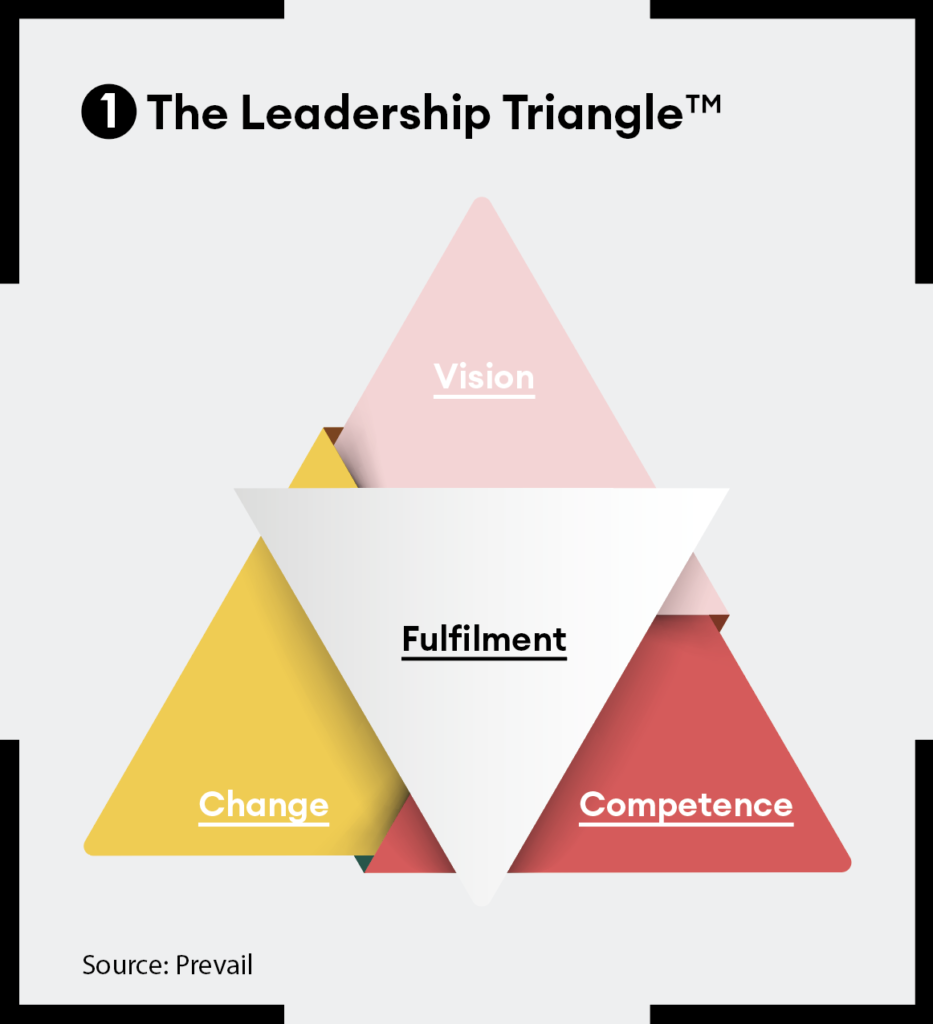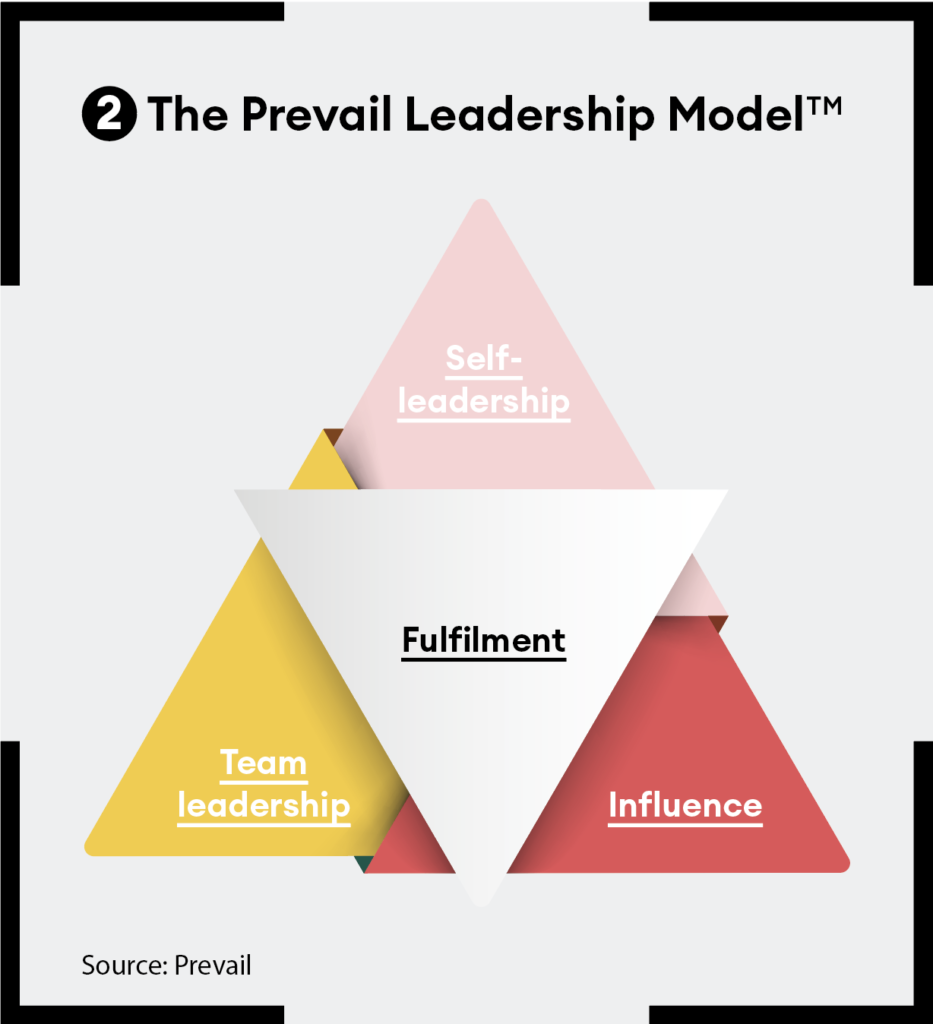What are the key skills and behaviours that leaders need amid challenging circumstances?
It is the exceptional leader’s responsibility to provide a sense of trust and security to teams. This was confirmed to me throughout my experience during the Covid-19 pandemic as an HR leader working first in retail and then in the financial sector, and as an executive coach. I have witnessed first-hand how the levels of trust created by managers, and the credibility they bring, project onto employees.
I realized the need for leaders to be compassionate, authentic and capable of rapidly adapting to change to enable their teams to deliver results in this rapidly changing world, where organizations are continuously changing their operating model to meet new business realities.
What are some of the key takeaways from the challenges we have lived and worked through over the last couple of years?
Show your true colours, share your purpose
Companies are increasingly adopting purpose to enhance engagement and build collaboration with employees, customers and society. Purpose helps a company align its actions with its values – its ‘Why’ – and maximize people’s contribution to the organization’s success. Leaders are responsible for showing how values can be translated into actions and behaviours. This requires competent leaders, with influencing skills, who really care for their people and drive company principles.
Communicate better to build a healthier environment
Leaders should open new communication channels and facilitate access to management and HR. In Boubyan Bank, we provided staff with 24/7 access to the HR department to support them in managing the initial impact of the Covid-19 crisis. We created WhatsApp groups for each division in addition to existing formal means of communication, helping teams to continue managing their work smoothly and efficiently even in the face of the disruption of the pandemic. People enjoy the informality of such channels. We started sharing our achievements, anniversaries and other daily engagements. Solutions can be simple and straightforward!
Build on the power of human interactions
In times of disruption, there is a risk that employees become sceptical and disengaged because of the lack of one-to-one interactions with their leaders – even when crisis management procedures are in place to take care of the essentials. In my role as a chief HR officer with a mega-retailer at the outset of the pandemic, I was approached daily by employees from different locations and in different roles, seeking assurance about whether the company’s management was sincere in their promises. Fear was rife. Leaders need to be visible and encourage positive behaviour such as ownership, accountability, reliability, and having an open (or growth) mindset.
Personal mastery is the foundation for success
Leaders are learners. They need to role model the learning that they expect of others, for example by using readily-available tools such as e-learning and webinars. Enhancing your personal mastery will support your capacity to manage yourself, and your team, during difficult times.
Communication skills are key to building trust
Challenging times make plain an enduring truth about leadership: no matter what good intentions you may have as a manager or a leader, people need to relate to your aims. They need to ‘feel it’ personally – and that requires a high level of ongoing communication that exposes you to employees. This can be reflected through answering difficult questions, for example, to the extent of showing some vulnerability while still being in charge.
Be an authentic leader, because actions are louder than words
Leaders must have integrity as a fundamental part of their nature and the essence of their lifestyle.
To succeed in difficult times, leaders must have integrity as a fundamental part of their nature and the essence of their lifestyle. Why lifestyle? Because you cannot fake integrity or just apply it occasionally; it should be the cornerstone of every leader. It is a point made by John Adair in his book Leadership and Motivation and, resonantly for many leaders across the Middle East and beyond, in his well-known 2010 book The Leadership of Muhammad. For leaders at any level of business, be it in finance, retail, or any other sector, being successful and inspiring demands authentic integrity.
During the Covid-19 pandemic, the Kuwaiti minister of health, Dr Basel Al-Sabah, personified a commitment to doing the right thing with integrity when he personally led from the forefront of the nation’s emergency rooms during the peak of the first wave. He left his family for over 50 days so that he could be there for all Kuwaitis during the crisis, earning him national fame and the fulsome support of Kuwait’s Emir. His actions helped to build public trust, winning compliance with his calls to stay at home as authorities sought to minimize social interaction.
Show vulnerability to earn trust
Leading by example, with integrity, and showing vulnerability make an optimized version of an exceptional leader.
The leader may or may not eventually deliver the best results – but leading by example, with integrity, and showing vulnerability make an optimized version of an exceptional leader, especially when dealing with uncertainty. Admitting to the things that make us vulnerable shows humility and can help build trust among teams. This does not mean that we should expect mediocre results from leaders who are authentic. In fact, quite the opposite – true leaders need to deliver exceptional results in terms of generating a business impact, exceeding customer satisfaction and meeting expectations of their different stakeholders.
Exceptional leadership
How can you be an exceptional leader – within an organization or as an entrepreneur – who can influence others during difficult times? I describe effective leadership through my Leadership Triangle consisting of three main elements – vision, competence and change – supported by fulfilment.
1 Vision
In every situation where a person needs to take charge and lead, they must have clear objectives and deliverables that can be quantified and tracked based on milestones. Your vision can be based on achieving specific targets, or it can be about leading teams to exceed stakeholders’ expectations.
2 Competence
The next step is to ensure that you are competent to achieve your vision. Do you have the skills needed to succeed? If not, define what you need to learn and apply yourself to meet that goal. Competence requires us to have the right attitude, in terms of the willingness to learn and to understand; the right knowledge; and finally, the ability to apply what we learn. All three must be properly aligned.
3 Change
Finally, yet most importantly, is the desired change. Having an exceptional vision that inspires people while not taking serious action towards the ultimate goal will only end with demotivation and a loss of faith. Promising without delivering always creates disappointment. The model for authentic leadership therefore implies that change is essential. If it does not occur as expected, you need to revisit your vision and competency to understand why.
4 Fulfilment
There is one final factor, which is the base of any exceptional leader: fulfilment. Fulfilment is the fuel that keeps a leader moving forward toward their desired vision. It’s the motivation that drives you to succeed in any situation – even (perhaps especially) in difficult times.
Fulfilment reflects your leadership characteristics: perseverance, humility, discipline and truthfulness to your values. If you do not like what you do, lack self-motivation and are short of eagerness to meet your vision, you will not be effective. In the eyes of others, authenticity then becomes secondary to your position and image.
The Leadership Triangle is at the heart of my model for exceptional leadership: the Prevail Leadership Model.
The Prevail Leadership Model
To help global leaders make the most of their life journey and become exceptional, successful leaders with a built legacy, I created the Prevail Leadership Model (see below). It provides an approach that starts from the leader leading himself or herself, and extends to leading others.
It is the ultimate model to help you lead in a genuine, authentic manner that makes you stand out from the rest.
1 Self-leadership
The first factor in the Prevail Leadership Model, self-leadership, requires personal vision based on values and passion. The most successful leaders make it because they are determined to pursue their dreams and vision. Elon Musk, for example, is changing the world and continuing to take risks, despite that fact that he became enormously rich a long time ago. Why is he doing this? Because of his vision. Self-leadership also, of course, demands competence, and personal mastery. It needs a commitment to change too, based on defined outcomes for one’s personal vision, a personal life plan, and ultimately, the pursuit of an intentional life.
2 Influential leadership
When it comes to leading others, vision is essential: sharing your dream and the outcomes you envisage is vital for engaging others in joining the journey to a common destination. Competence in credibility and influencing skills is an absolute pre-requisite. Delivering change means winning others over to your way, including by building alliances and developing supporters, sponsors, and followers. Find fulfilment by helping others.
3 Team leadership
When it comes to leading teams, the requirements for your vision become more concrete: they need to be defined in terms of objectives, goals and team vision. The key competences are for building and leading a team. Delivering change means the ability to achieve exceptional results, make a positive impact and create positive experiences, while exceeding stakeholders’ expectations. Fulfilment ties together the whole: motivating yourself and team members simultaneously.
Starting your journey
Recognizing that leadership should be a fulfilling journey is essential to the Prevail Model – a journey of authenticity, integrity, caring and gratitude. The intention is not to reach your goal; it is to lead successfully while enjoying the ride.
To be exceptional in your life and at what you do, you need to start by acknowledging your strengths and specifying what you want to be known for.
To be exceptional in your life and at what you do, you need to start by acknowledging your strengths and specifying what you want to be known for. The next step is leading your life and career towards your goal, which falls right into vision. Inspiring and influencing others, then leading a competent team that believes in your vision and accepts it as their own, is another step up the ladder.
Why waste your life fulfilling someone else’s agenda while neglecting your own? While shutting off your dreams and your potential? You can find fulfilment by following your vision and building teams who can both follow and nourish your leadership journey – through tough times and better ones alike.
Abdulaziz Al-Roomi is author of the Amazon number one bestseller, Prevail, executive manager – human resources group at Boubyan Bank, and a leadership coach.



